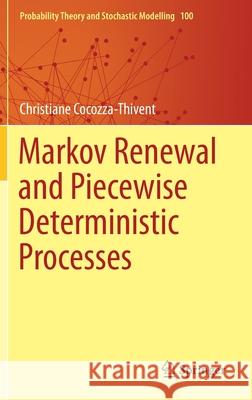Markov Renewal and Piecewise Deterministic Processes » książka
topmenu
Markov Renewal and Piecewise Deterministic Processes
ISBN-13: 9783030704469 / Angielski / Twarda / 2021 / 252 str.
Kategorie:
Kategorie BISAC:
Wydawca:
Springer
Seria wydawnicza:
Język:
Angielski
ISBN-13:
9783030704469
Rok wydania:
2021
Wydanie:
2021
Numer serii:
000712318
Ilość stron:
252
Waga:
0.55 kg
Wymiary:
23.39 x 15.6 x 1.6
Oprawa:
Twarda
Wolumenów:
01
Dodatkowe informacje:
Wydanie ilustrowane











